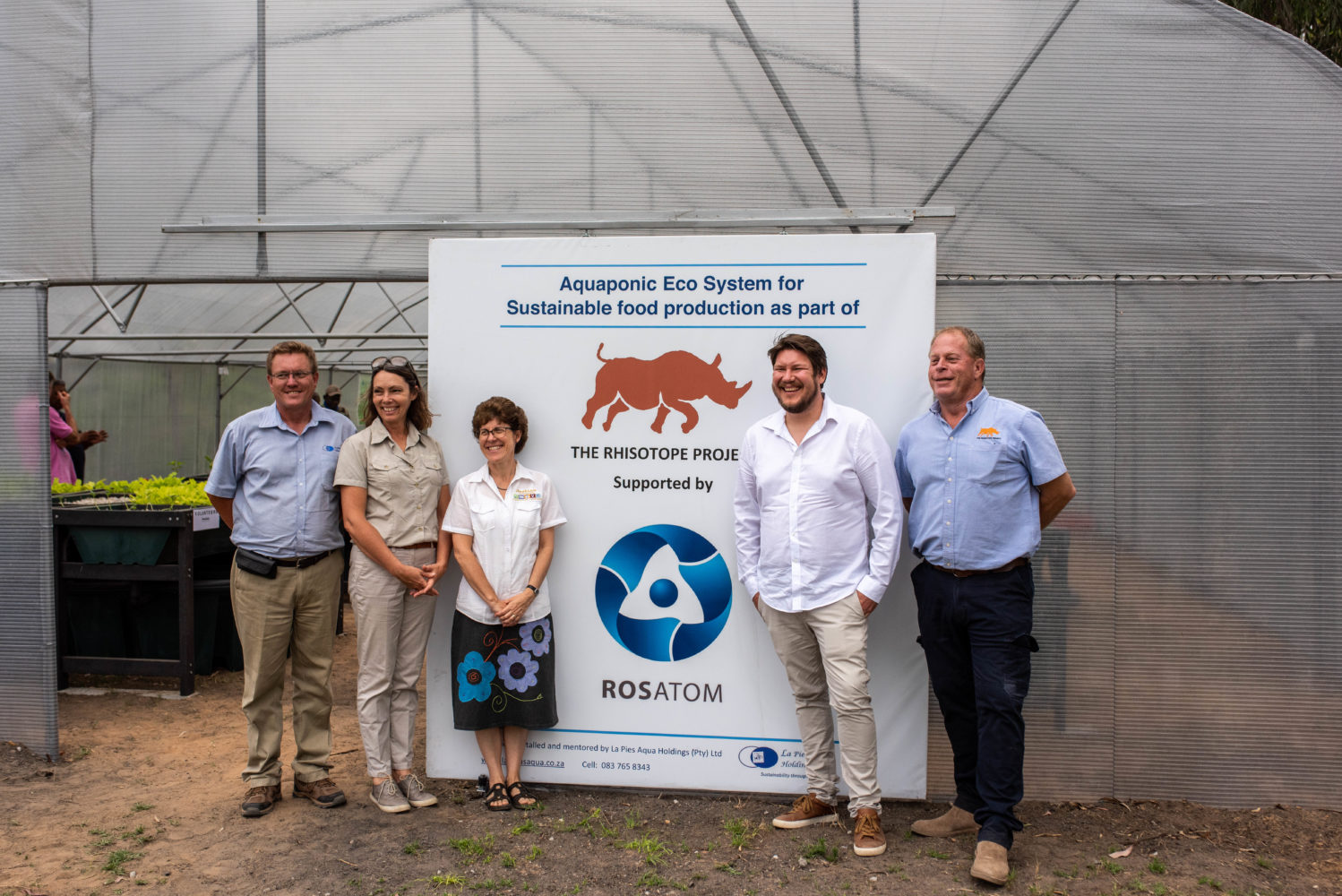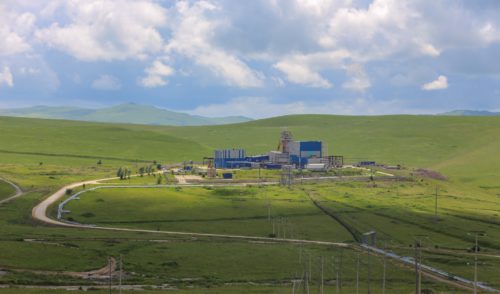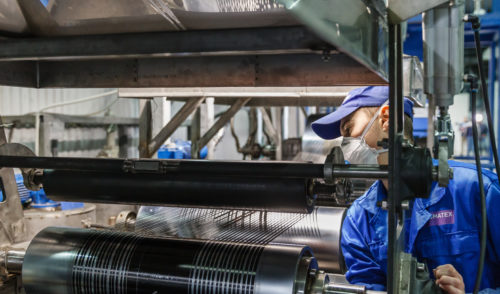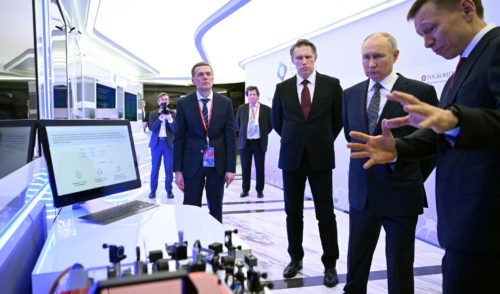
Benefitting the Nature and the Public
back to contentsRosatom has launched a number of social initiatives in Sub-Saharan Africa, a region of its operation. These range from supporting schoolchildren in low-income communities to fighting poaching. Here is our account of the most remarkable projects of 2021.
In late September, the first phase of the Rhisotope project was successfully finalised. It is an unprecedented partnership project aiming to fight rhino poaching in South Africa with nuclear technology.
South Africa is home to 90% of the global population of rhinoceros. These animals are hunted for their horns although trade in rhino horn is banned internationally. In 2010–2019, more than 9,600 rhinos were killed by poachers in Africa.
To fight poaching, the initiators of Rhisotope Project suggested implanting a radioactive isotope into the rhino horn in the amount that will do no harm to the animal. First, it will be almost impossible for such a horn to be taken out of the country as it will be easily detected at any border crossing. Second, there will be no demand for isotope-marked horns.
Rhisotope brought together scientists and experts from three continents – the research initiative was joined by South Africa, Australia, Russia and the USA. Rosatom is a key partner to this unprecedented project. Scientific expertise in the project is presented by Scientific Technological Center “YAFI,” one of the leading developers in the manufacturing and development of innovative and cost effective professional radiation control equipment.
This May, a trace amount of C13 and N15 non-radioactive stable isotopes was injected into the horns of two white rhinos. After that, the animals were monitored daily over a period of four months. Subsequent tests confirmed the initial hypothesis: the procedure is absolutely safe for the rhinos as radioactive isotopes do not penetrate into the animal body.
The researchers have proceeded to the second phase, radiological dose simulation. After that, massive implantation of isotopes into the rhinos’ horns will begin.
“Scientific collaboration should reach across borders, time zones and continents if we want to save our common home and solve environmental problems. We are very glad that Rhisotope will be yet another successful initiative of Russia and South Africa,” said Ilya Rogachev, Russian Ambassador to South Africa.
Rhisotope attracts interest from the international community. Professor James Larkin, Director of the Radiation and Health Physics Unit at the University of the Witwatersrand (South Africa), who initiated the project, talked about it in detail at the World Nuclear Association (WNA) symposium held in September, at the 26th UN Climate Change Conference of the Parties (COP26) in Glasgow, and at other events.
After the necessary research is completed, the project will have a possibility to be expanded to cover the entire Africa and other continents. Wildlife protection organizations will have an opportunity to be trained free of charge. The same technique can be used to save other endangered species.
To support the anti-poaching effort, Rosatom interacts with local communities to raise their awareness of the importance of biodiversity, and improve their living standards. This November, Rosatom in partnership with La Pieus (LPA) began installing aquaponic greenhouses in the town of Paterson (Eastern Cape Province, South Africa). They are expected to improve nutrition in the town: food from the greenhouses is supplied to the families of volunteers who help fight poaching, as well as to a local canteen, an orphanage and nearby hotels. Proceeds from sale of the food will also finance the improvement of living conditions for the local residents.
“Aquaponics is the most innovative farming method of the new century. This system gives you the opportunity to process food in your backyard and generate income. One system can feed a family of four to six people sustainably”, said the CEO of LPA, 18-year-old eco activist Rikalize Reinecke, who started her own aquaculture and aquaponics farm in 2014.
An aquaponic greenhouse is a closed ecosystem combining aquaculture (raising aquatic animals such as fish, snails or prawns) and hydroponics (growing plants in a mineral water solution). An aquaponic system needs no chemical fertilizers – conversion and cleaning processes inside it run naturally.
In addition, lectures were held in a local school, at which experts told schoolchildren about human-environment interactions and wildlife conservation initiatives.
Rosatom carries out other socially important projects, too. This can be illustrated by an initiative aiming to overcome the stigma of menstruation.
According to experts, around 7 million South African girls miss school for one or more days every month (up to 20% of the total school time) when they have a period, and some of them even give up studying. In addition, many girls cannot afford sanitary products due to the ‘pink tax’ (an upcharge on products intended for women). As a result, the so-called ‘period poverty’ prevents girls and women from studying and working.
In October this year, Rosatom began to support girls from Mpuluzi Secondary School in Mayflower, Mpumalanga Province. Together with the South African Ministry of Tourism and the Embassy of Russia to South Africa, Rosatom donated 180 reusable sanitary kits with a storage life of five years – a safe and sustainable solution to the problem. The girls were also given a lecture on women’s health and nutrition.
“My country has never been indifferent to the fate of African nations. In the past, Russia assisted African nations in their struggle for liberation and against oppression. Today, albeit in a small way, we pledge our support in liberating young African women. I believe it is our common duty to help our children to walk this thousand-mile path as long as we can because we attach our best hopes for a better future to our children and the generations to come,” Ilya Rogachev says.
The biggest problem of period poverty is that women have to choose between buying food and buying period products and it shouldn’t have to be a choice. The other issue is silence. Not enough people or companies talk about it. By supporting this initiative, Rosatom is not only helping girls, but also raising awareness.




